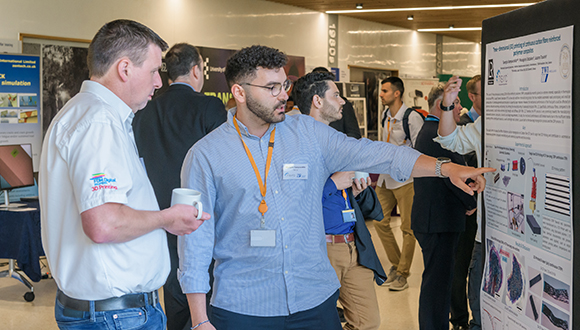Fri, 18 August, 2023
Want to know how to fund a PhD? Look no further than a Studentship...
In this article, we will explain what studentships are, how to apply for them, and how to increase your chances of success.
Studentship Meaning:
A Studentship is a form of financial support for doctoral research. Often referred to in the UK as a PhD Studentship, it can cover tuition fees and living costs, and may also provide additional funding for materials and equipment. Studentships are available from universities, government bodies (such as Research Councils), and independent research charities like Lloyd's Register Foundation. Studentships and PhD Scholarships are similar but separate.
Beginners Guide to Applying for a Studentship
To apply for PhD Studentships, you'll need to find a specific research project that is funded by a studentship. This can be done by searching the websites of universities, research councils, and other funding bodies.
Make sure you fit the entry requirements for your selected PhD topic of programme, before you begin your application.
Visit our PhD Opportunities page to read our latest list of Studentships.
If you have any questions about whether you are eligible for a PhD studentship, then contact NSIRC directly, or speak to the university admissions office.
Once you have found a project that interests you, you will need to submit an application that includes a cover letter, your CV, and any other required documents.
When preparing your application, it is important to demonstrate your academic merit and your dedication to the subject area. You should also explain why you are interested in the specific research project and how you would contribute to its success. Be sure to follow all application guidelines carefully and submit your application before the deadline.
Increasing your Chances of Success
Studentships can be very competitive, so it is important to do everything you can to increase your chances of success. Here are some tips:
- Start early: Begin your search for a studentship well in advance of the application deadline. This will give you time to research different funding options, check the eligibility criteria and prepare a strong application.
- Focus on your strengths: When choosing a research project to apply for, consider your strengths and interests. You'll be more likely to succeed if you're working on something that you're passionate about and have experience in.
- Network: Attend conferences and other events in your field to meet potential supervisors and collaborators. This can help you to find out about new research projects and opportunities for funding.
- Be persistent: Do not give up if you are unsuccessful on your first attempt. Keep applying for different studentships and financial aids, and keep working to improve your application.
 PhD Studentships enable NSIRC students to access topics that give them unprecedented access to industry and impact. Photo: TWI Ltd
PhD Studentships enable NSIRC students to access topics that give them unprecedented access to industry and impact. Photo: TWI Ltd
PhD Studentship Terms and FAQs
Financial Support for International Students
If you're an international student, you may be eligible for financial support to cover your tuition fees and living costs. Many universities offer scholarships and bursaries specifically for international students, and there are also external funding options available.
UK Research Councils
Research councils are government bodies that provide funding for research in different subject areas. In the UK, there are several research councils that offer PhD studentships and other forms of financial support for postgraduate students. These include the Arts and Humanities Research Council (AHRC), the Economic and Social Research Council (ESRC), and the Natural Environment Research Council (NERC), among others like UK Research and Innovation (UKRI).
PhD Application Process
The application process will vary depending on the funding body and the specific research project. However, in general, you'll need to submit a cover letter, your CV, and any other required documents. You may also be required to attend an interview or provide additional information.
Maintenance Grants
Most PhD studentships provide a tax-free maintenance grant to cover living costs during your studies. The value of the maintenance grant will depend on the funding body and the cost of living in the city where you study. These grants are designed to allow you to treat your PhD as a job, so you won't need to find additional employment to support yourself.
A studentship can be a great way to fund your doctoral research and increase your chances of success. At NSIRC we have loads of great funding opportunities for industrial PhD projects and MSc programmes. To find out more explore our study with us page.
By following these tips and applying for the right funding options, you can achieve your academic and professional goals.